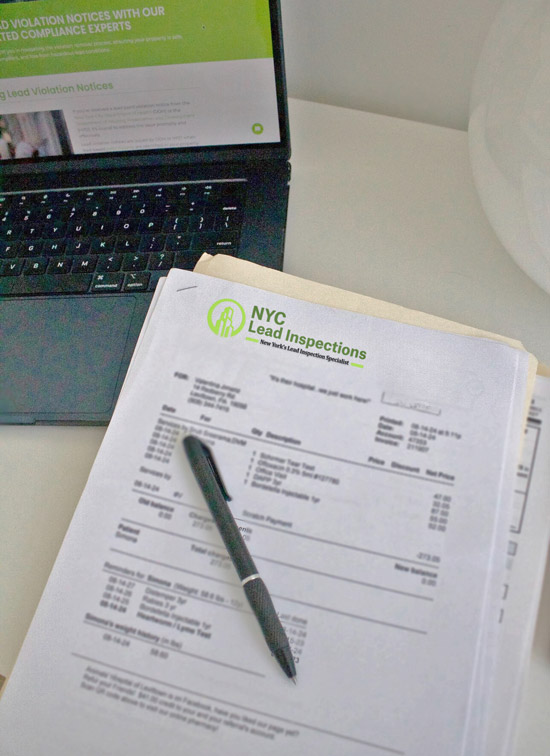Clear HPD Lead Offenses and Secure Your Residential Property Financial Investment
Navigating the intricacies of HPD lead violations is critical for residential property proprietors who focus on both compliance and occupant safety. With the substantial wellness dangers associated with lead exposure, specifically in older buildings, attending to these violations is not merely a regulative commitment but a calculated financial investment in the residential or commercial property's lasting worth.
Understanding HPD Lead Violations
Lead infractions recognized by the Division of Real Estate Preservation and Development (HPD) are vital problems that call for prompt focus due to the significant wellness risks associated with lead exposure, particularly in children. HPD lead violation clearance. These violations usually develop in structures created prior to 1978, when lead-based paints were generally made use of. Feature that fall short to adhere to HPD regulations might encounter substantial lawful and monetary consequences

Landlords are bound to deal with these infractions immediately. Failure to do so can lead to fines and further lawsuit from the HPD. Additionally, maintaining conformity not just makes sure lessee safety and security but additionally shields residential or commercial property value and investment. Therefore, homeowner must proactively manage lead threats by performing routine evaluations and executing necessary corrective actions to stick to HPD standards.
Health Dangers of Lead Direct Exposure
Exposure to lead postures considerable health threats, particularly for prone populations such as kids and expectant women. Lead is a hazardous steel that can cause a variety of damaging health impacts, largely affecting the nerves. In youngsters, also low levels of lead direct exposure can cause developmental delays, discovering troubles, and reduced IQ. The effect can be long-lasting, affecting academic performance and general lifestyle.
Expectant females revealed to lead may experience problems such as preterm birth, low birth weight, and developmental issues in their children. The fetus is especially vulnerable to lead's harmful effects, as it can disrupt brain development.

Offered these significant health risks, it is vital for homeowner to deal with lead dangers proactively. By making certain conformity with lead safety and security regulations, they not only protect the Website health of their tenants but also protect the value of their home investments. Awareness and prompt action are key to mitigating the dangers linked with lead direct exposure.
Actions to Deal With Offenses
Resolving lead offenses is necessary for preserving both renter security and residential or commercial property value. The first action in solving lead infractions is to conduct a comprehensive examination of the building to determine areas where lead hazards might exist. Engage a certified lead assessor or danger assessor to perform this analysis, making sure that all prospective issues are recorded.
Once the examination is total, it is essential to develop a removal plan customized to the particular violations determined. This plan must conform with neighborhood and federal regulations and outline the required steps to remove lead risks successfully. Working with a qualified lead abatement specialist is recommended, as they possess the competence and equipment to manage lead securely.
After remediation work is completed, a follow-up evaluation needs to be carried out to verify that all lead dangers have actually been adequately dealt with. Documenting the whole procedure, consisting of evaluations, remediation efforts, and communication with lessees, will certainly help maintain openness and secure your property investment in the lengthy term.

Relevance of Timely Activity
Taking prompt action to deal with lead infractions is important for guarding renter health and wellness and making certain conformity with lawful commitments. Lead direct exposure postures substantial wellness risks, especially to susceptible populations such as children and pregnant women. By addressing these violations swiftly, residential or commercial property proprietors demonstrate a commitment to tenant well-being and public safety and security.
Moreover, prompt resolution of lead infractions is necessary for satisfying regulative requirements. The New York City Division of Real Estate Preservation and Development (HPD) applies rigorous guidelines concerning lead paint risks, and failure to abide can lead to severe fines, consisting of fines and lawsuit. Delays in dealing with these concerns can worsen the circumstance, leading to extra substantial removal initiatives and resource enhanced prices.
Furthermore, solving violations quickly promotes trust fund and openness between residential or commercial property proprietors and lessees. Open up interaction about lead safety steps improves lessee contentment and can mitigate potential disputes.
Preserving Residential Property Worth
On a regular basis attending to lead infractions is vital for preserving residential property value in today's competitive realty market. Properties with unresolved lead concerns can deal imp source with considerable depreciation, deterring possible purchasers and reducing rental income possibility. Customers and financiers are increasingly watchful concerning health and wellness and security standards; therefore, residential or commercial properties lacking conformity with lead guidelines may be deemed obligations rather than properties.

In addition, residential properties that demonstrate an aggressive approach to lead offense remediation signal a dedication to tenant safety and security and total home upkeep. This not only improves marketability yet additionally cultivates lessee retention, lowering turnover expenses. Properties that are certified with wellness codes frequently bring in higher-quality occupants going to pay a costs for a secure living atmosphere.
In enhancement, preserving appropriate paperwork and a transparent history of lead examinations and remediation can even more reinforce residential property worth. This openness develops trust fund with potential purchasers and renters, showing that the home has been well looked after and is without hazardous conditions.
Eventually, focusing on lead compliance is not simply a regulatory responsibility; it is a tactical investment in the long-lasting value and charm of your property. Safeguarding your investment today guarantees a much more lucrative tomorrow.
Final Thought
In conclusion, resolving HPD lead infractions is essential for safeguarding both occupant health and building financial investments. Focusing on lead security reflects an accountable approach to building administration, enhancing the value of keeping a risk-free living setting for all residents.